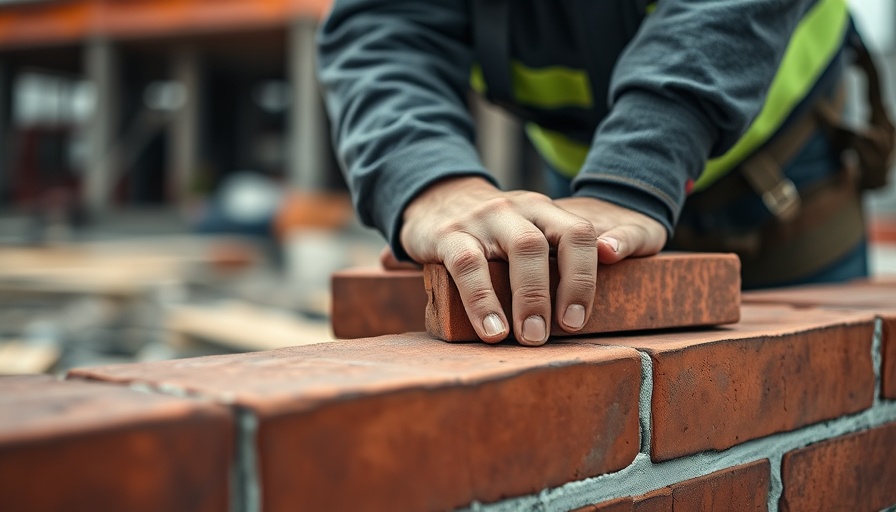
Understanding the Funding Journey of Property Development Projects
For many aspiring property developers, understanding the funding journey is crucial. This journey starts with a vision and an idea— transforming a piece of land into a profitable property. However, it's not just about adjusting plans, drilling holes, or erecting walls; it's about strategically navigating the funding maze to ensure everything goes smoothly from planning to completion.
From Vision to Viability: The Planning Stage
The first step towards property development is rigorous planning. Establishing clear goals for your build while calculating potential costs isn’t just an essential task; it’s the foundation of your overall success. Many developers often overlook the importance of building a buffer into their budgets— a general recommendation is to set aside an additional 10% for unexpected expenses. These “rainy day” funds can help cushion against surprises that typically arise during development projects.
Once the costs have been accurately assessed, it’s crucial to analyze the potential return on investment. Conducting thorough market research can fortify your confidence in achieving a worthwhile profit margin. This is where the real work begins, as understanding the local property market, particularly in a vibrant hub like London, will be key to your project's success.
The Role of Development Finance: What You Need to Know
Now that planning is underway, securing development finance becomes paramount. Development finance, often referred to as construction finance, allows developers to borrow against the projected value of a property. If you're an investor aiming to sell or rent out properties, you will need an unregulated finance product, typically designed for seasoned property professionals.
For individuals looking to build their own homes, regulated options are available. These products not only offer the necessary funding but also consumer protections that cater to those who may lack extensive property finance experience. Understanding these distinctions could save you from unfortunate surprises down the line.
Securing Permissions and Adhering to Regulations
Before work begins, obtaining all necessary permissions is essential. This could include securing planning permissions and adhering to building regulations while ensuring that safety requirements are met throughout the project. Many lenders require proof of these permissions before the distribution of funds, making it critical to have all documents prepared in advance to avoid potential delays.
Navigating Cash Flow Challenges During Construction
Once construction is underway, managing cash flow is often one of the most challenging aspects of property development. It's during this stage that expenditures might seem overwhelming. Development finance is typically released in stages, which means careful monitoring is vital.
Most lenders will evaluate progress by sending a surveyor to review the construction stages, releasing funds only when benchmarks are met. This staged approach not only ensures that the developer is sticking to their timelines but also helps manage risks for both parties. Creating a detailed cash flow management plan can make this process much smoother and ensure there are no sudden financial shortfalls.
Completion and the Path to Refinancing
As you reach the finishing line of your property development, it’s time to consider refinancing. Many developers look to exit their development finance by securing a long-term mortgage on the completed property. This transition is crucial for turning your investment into a sustainable income source, whether through leasing or outright sale.
Future Insights: The Road Ahead for Property Development in London
Property development is continuously evolving, especially as London embraces intelligent and sustainable living. As more young homeowners prioritize eco-friendly practices and smart technology, developers must also align their projects with these emerging trends to attract potential buyers.
With the rise of smart-connected homes, incorporating tech connectivity in your build can fortify your project’s appeal. This is not merely a trend but rather a reflection of modern living— where technology meets sustainability. Don't miss out on ensuring your development resonates with a tech-savvy, eco-conscious audience.
Conclusion: Your Next Steps in Property Development
For young homeowners interested in venturing into property development, understanding the funding, planning, and execution phases is imperative. With proper preparation, the path from planning to completion can be navigated effectively. Embrace this journey not just as a means of profit but as an opportunity to contribute positively to the community and create spaces that people will love to call home.
 Add Row
Add Row  Add
Add 




Write A Comment